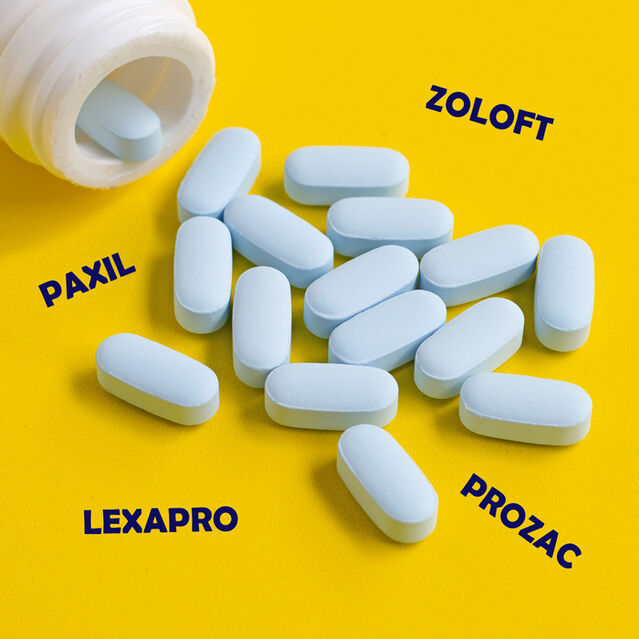

The role of alcohol and drugs may also need to be examined here. These include breathing and relaxation exercises, yoga, physical exercise and being more social to counteract isolation.
The third element is adopting better behaviors and activities to turn off the fear focused brain. Often, it is only after medications have reduced anxiety and improved focus that a person can start learning about themselves in psychotherapy. Psychotherapy is the second element and is vital for problem-solving. Medications are one component and are often a game-changer. Psychiatry Center, we believe that a three-pronged approach gives the best outcomes for reducing anxiety. SSRIs and SNRIs should probably be called anti-depression/anxiety medications because they effectively help both depression and anxiety Should I Take Medications or Start Psychotherapy?Īt Tomer T. They also occur together: most of the patients that I see for anxiety also score high on depression and vice versa. This is because anxiety and depression are very similar in terms of neurotransmitters and genetics. SSRIs and SNRIs are commonly known as anti-depressants but they are equally effective for anxiety. There are two other related questions that people ask me about anti-anxiety treatment that you should also consider: Why are Anti-depressants used for Anxiety Treatment? Treatment usually continues for 8-12 months to several years and when the medication is stopped, the anxiety can slowly return. This is in contrast to the benzodiazepines that have an immediate effect. SSRIs and SNRIs work slowly at first, taking 2-4 weeks to kick in. In fact, anxiety sufferers often tell me that they feel a new person on these medications.Īs a psychiatrist, it’s very rewarding to see positive change as person’s anxious brain settles down on a SSRI or a SNRI. Typically, SSRIs (selective serotonin re-uptake inhibitors) such as fluoxetine (Prozac) or SNRIs (serotonin and norepinephrine re-uptake inhibitors) such as venlafaxine (Effexor) are used. Is Anxiety a Long-term Issue?Īnxiety can be a life-long problem or an issue that goes on for years.Įxamples of long-term anxiety are social anxiety, generalized anxiety disorder, social anxiety, panic disorder, agoraphobia, obsessive compulsive disorder, anxiety associated with autism spectrum disorder, life-long low confidence and PTSD. Many people find melatonin effective but research supporting its use for insomnia is not strong. Over the counter medications for sleep include antihistamines such as diphenylhydramine (Benadryl) but some complain of a hangover feeling the next day. 
At higher doses it also helps generalized anxiety and depression. Trazodone is a favorite sleep aid because it can be helpful at low doses and has no risk of dependency. Examples are zolpidem (Ambien) or suvorexant (Belsomra). Sleeping medications are used to target sleep initiation. They are not FDA approved for long term daily treatment, have misuse potential and you can’t drink alcohol with them.įalling asleep is often difficult when you are anxious. In medical settings, we often use an intermediate acting benzodiazepine such as lorazepam (Ativan) that can be given orally or intravenously because it lasts for 4-6 hours.īenzodiazepines are used as a short-term strategy (a few weeks to a few months).

They provide rapid relief but then exit your system quickly, often causing resurgence of the anxiety.īenzodiazepines can prevent anxiety ahead of medical procedures or MRIs and they can also control acute panic attacks. Short acting agents such as alprazolam (Xanax) only last an hour or two. I prefer longer acting benzodiazepines (that last for 8-12 hours) such as clonazepam, given in the evening or twice daily. There are three common target symptoms: the anxiety itself (which is uncomfortable), paralysis, (which interferes with problem solving) and insomnia (which prevents natural rest and recuperation).īenzodiazepines such as diazepam (Valium) can reduce the intensity of anxiety, stop the feeling of paralysis, and promote sleep. If there is a trigger or stress associated with the anxiety such as a relationship breakup, a medical procedure or illness, a death in the family, upcoming air travel or a personal crisis, then the approach is symptomatic. Is the Anxiety Precipitated by an Acute Crisis or Event? Here’s how a psychiatrist thinks about it. People often ask me what anti-anxiety medications are best. Choosing the right drug to target anxiety can be confusing.







 0 kommentar(er)
0 kommentar(er)
